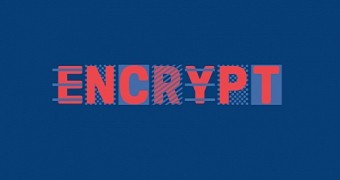Encryption is today's hot topic, and the ongoing Apple vs. the FBI scandal has managed to introduce a false sentiment of "encryption is for the bad guys," making many of us temporarily forget how common, useful, and very much needed this technology really is.
It took people like John Oliver to slap some sense into some of us and remind us that one single terrorist's phone isn't more important than our bank account, our medical records, and all our online profiles protected in one way or another by encryption.
If you still have friends who continue to say that encryption backdoors are a good idea, there are countless websites, videos, and tutorials that have been uploaded in the past month solely on this topic.
Mozilla always cared about encryption
Lost in this avalanche of pro-encryption websites is Mozilla's own educational campaign, launched just a few days before the whole FBiOS spectacle started.
Created for no ulterior reasons, and only to teach us about the role of encryption in our lives, the website stands to show that some things are so important for today's Internet that you cannot live without them.
Softpedia spoke about encryption and Mozilla's recent advocacy campaign with Marc Surman, Mozilla's Executive Director, and Denelle Dixon-Thayer, Mozilla's Chief Legal and Business Officer.
Softpedia: Mozilla had launched a campaign to educate people on encryption just days before the FBI vs. Apple fight broke out. Had there been signs that pressure was mounting on encryption usage before this, or is it more of an educational project that dropped at the right time?
Mark Surman, Mozilla: The timing of Mozilla’s encryption education campaign may seem serendipitous, but it’s not coincidence. The global debate about encryption and user security has been gaining momentum over the last year, and Mozilla has been closely following a number of threats to encryption.
For example, the “Snooper’s Charter” legislation in the UK. We determined encryption would need the support of the grassroots open Internet movement in 2016 and beyond.
Softpedia: Legally speaking, can companies or organizations like yours do something against an all-mighty entity like the US government, or only a massive sway of public support can change things now?
Denelle Dixon-Thayer, Mozilla: At Mozilla, we are using all of the tools at our disposal - legal strategy, as well as technology, advocacy - to influence this debate and protect our users. That is why we stood with Apple publicly and filed an amicus brief with a coalition of technology companies earlier this month.
The Obama administration has advocated in favor of security measures in the past. The American public has also told us that they want more security, not less security. We think that this case is about Internet user security and public safety and that’s why we’ve been supporting Apple since the news broke of the FBI request.
One of the most important things about this case is that it has created mainstream discourse about some very important topics relevant to all our users - encryption, user security and government access to data. We welcome this and we hope the general public will engage further in this debate.
“The American public has told us that they want more security, not less security”
Softpedia: Without Edward Snowden's revelations about the US government's massive internal surveillance campaign, do you think tech companies would have been friendlier to the idea of encryption backdoors?
Denelle Dixon-Thayer, Mozilla: It is hard to speculate on what could have been. But in the last few years, as documents have been declassified and disclosed, we have seen that many tech companies were resistant to the idea of backdoors or some kind of special government access. Tech companies did oppose the government’s efforts by filing legal challenges. But this all happened behind closed doors, outside the view of the public until only recently.
We are fortunate that the question of whether Apple must provide this assistance to the FBI is taking place in the open. It has created an incredible level of discourse and visibility around the important subjects of encryption and security. The fact that Apple gets to make its case in broad daylight to the court, Congress, and the public is a good thing. It’s the type of dialogue and transparency that Mozilla has wanted all along.
Softpedia: Is there a middle ground between secure encryption and government-issued backdoors? Wouldn't it be easier to focus research efforts on new technology that can satisfy both needs?
Denelle Dixon-Thayer, Mozilla: Technology companies need to do everything in their power to ensure the security of their users and build products and services with strong security measures in place to do that.
“Mozilla: There is no such thing as a safe backdoor.”
At Mozilla, it’s part of our mission to safeguard the Web and to take a stand on issues that threaten the health of the Internet. There is no such thing as a safe backdoor. People need to understand and engage with encryption as a core technology that keeps our everyday transactions and conversations secure.
It is important that we all understand the challenges being confronted by law enforcement, but there is no easy answer here or magical solution that can get law enforcement what it is asking for without compromising the security of the Internet.
Softpedia: Are we going to win this fight?
Mark Surman, Mozilla: We view encryption as a necessity, not a luxury - and so Mozilla plans to stand up for encryption in every way we can. On a grassroots level, we’ll continue to educate everyday users about encryption’s importance. On the legal front, we’ve filed an amicus brief in support of Apple. And on the technical side, Mozilla is continuing to champion Let’s Encrypt, a free, automated and open Web certificate authority that helps ensure all Internet browsing is encrypted. Mozilla is collaborating on Let’s Encrypt with Electronic Frontier Foundation, Cisco, Akamai and many other technology organizations.

 14 DAY TRIAL //
14 DAY TRIAL //